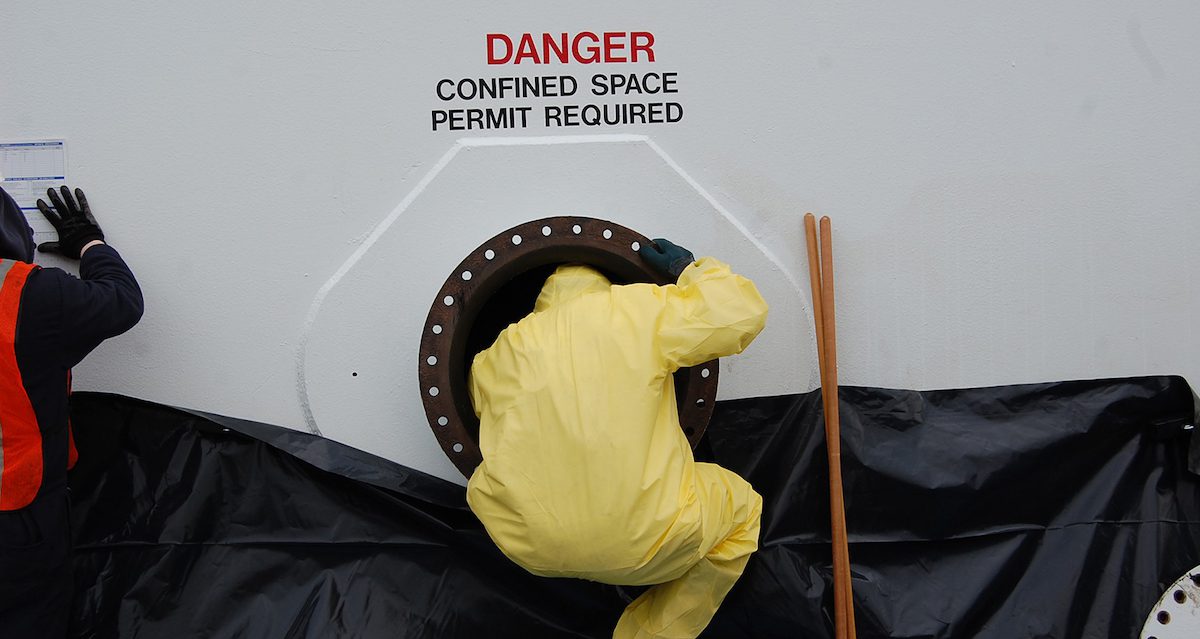Photo courtesy ITF
The International Transport Workers Federation (ITF) is calling attention to the hazards of confined space entry after a “shocking spike” in the number of deaths associated with the known hazard.
Confined space fatalities are all too familiar to the shipping industry. According to the ITF, since January 2018, 16 dockers and 12 seafarers have died from asphyxiation or explosions in confined spaces – or from falls after passing out due to bad air. To put the rise in number deaths in perspective, there have been a total of 145 in the past 20 years, but an alarming 28 of those have occurred in just the past 16 months.
The ITF says the massive rise in fatalities says everything about the “callousness” of decision makers in the industry, including companies that choose profits over properly training and equipping workers, or investing in onboard safety culture.
While the industry agrees that most maritime workers are generally aware of the risks associated with entry into confined spaces, the ITF warns that these same workers may not be aware of the details and extent of the varied dangers posed by forest products, coal, iron ore, grains, gases and other cargo.
“It is not enough for a worker to rely on opening the hatches for 30 minutes and hoping for the best, or to do the best they can to protect themselves on their own It is not enough for workers to take all available precautions but sometimes still be caught without sufficient protection by pockets of gases and lack of oxygen. And it is absolutely not enough that workers are left to cope with an inhumane industry by doing what humans have always done for one other: risk their own lives to save their fallen colleagues,” the ITF said in a statement.
The ITF points to an incident last November in which two dockers were killed while unloading logs from the hold of a bulker in Montevideo, likely after exposure to an unexpected fumigant they were not told about. A crew member saw them in distress and entered the hold wearing a face mask, determined to rescue them. During his efforts, his mask was reportedly removed, and he passed out, eventually landing in hospital in an induced coma. A third docker required medical help before the tragic incident was over.
According to the ITF, it is the shipowners that have a duty of care for their crew and dockers employed to carry out their cargo operations. “Education and procedures are not optional. The negligence of shipowners who disregard standard procedures and cost workers their lives must be met with a punishment proportionate to the lives lost,” the ITF says.
The International Maritime Solid Bulk (IMSB) Cargoes Code governs the carriage of bulk cargo worldwide, identifying and grouping cargoes based on hazard and providing guidelines for safe handling and testing procedures.
“The ITF Dockers’ and ITF Seafarers’ sections will be at the International Maritime Organization (IMO) working with shipowners to ensure that the regulations governing confined space stand up and are strong enough to protect all maritime workers,” the ITF added.

 Join The Club
Join The Club











